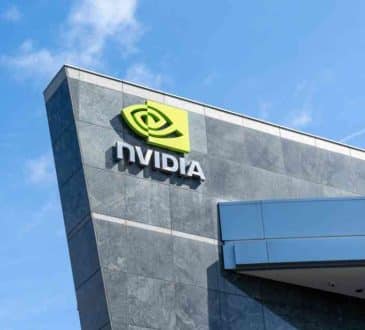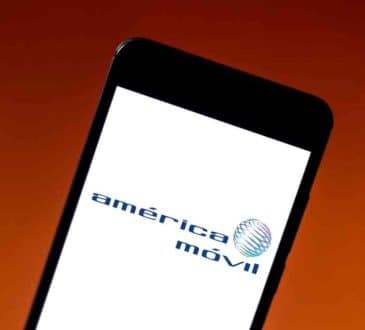Creating a better workplace, is this our new normal?

It’s Monday morning 5.00 am when I am woken from my deep sleep by the annoying beep beep of my alarm. As I drag myself out of bed, I wish to the work genies to create a world where I can work from home (WFH). Life would be so much easier I reason. There would be no need to battle 2 hours of traffic each day, no dressing up in my formal work clothes and no annoying people interrupting me and stopping me getting things done. Then along comes COVID-19 and it seems my wish has been granted, albeit in tragic circumstances. However, after months of living the WFH ‘dream’, I am starting to realise that I be missing out on more than just the traffic.
My employer has set me up with the tools to make my dream a reality and I am getting stuff done without all those interruptions. I have even nearly mastered the Zoom meeting and am only muting myself 10 times a day. I am set up for continuing to operate as a high performer while enjoying the benefits of working from my own personal haven. “I’m definitely winning” I tell myself as I thank the WFH genies. However, cracks have started to appear in my perfect WFH solution as my working life and home life start to merge into one with unforeseen negative consequences.
As much as my introvert hates to admit it I started missing human connections. Not digital faces, but the real ‘sit opposite, sip almond mocha and share the same space’ connection. Initially I reasoned that this was just me adjusting to the new normal, but then I started noting the research being done on the impacts of WFM. From a work perspective, productivity is falling, motivation is waning, and creativity is drying up as informal collaboration is not delivering the next big idea or product. On a social level, we are seeing increases in depression, suicides, domestic violence, and mental health issues. These costs are not just human but are also starting to hit the financial bottom line with reduced productivity and rising potential workplace mental health claims.
As COVID continues to dictate our new normal organisations are choosing, or being forced to, adopt WFH as a preferred strategy. Leases are being broken as traditional workplaces become more and more irrelevant further breaking connections of employees with their employer and colleagues. Dropbox recently announced that all employees would now WFH and that they would not maintain traditional offices. An evolving challenge for leaders is about how do they continue to manage productivity, ensure the wellbeing of their people and maintain human connections while still managing the COVID-19 risks.
As I was reflecting on this collaboration challenge, a good friend Galvin Scott Davis reached out to congratulate me on my latest book. Galvin had previously created and sold a very successful coworking office in Sydney that was targeted at connecting creative minds. Just prior to COVID he had recently launched his next endeavour which was this cool space overlooking a part of Sydney harbour. Gingerly, I asked him how business was going, expecting him to share with me a sad story of lost revenue and a rapidly declining customer base. Afterall, the traditional coworking office business model is built on fitting in as many desks as possible (closer than 1.5 metres social distancing) and hotdesking (all those shared germs) which were a definite COVID no-no.
Instead, he was upbeat and talked to me about Work & Wellness Retreats and battery hens versus free range hens. He talked about how he had been able to pivot their operating model to fill the gaps WFM had now created. Initially I thought he was putting on a brave face and I was almost about to ask him what he was taking because I wanted some, given the positivity he was effusing while commercial tenancies were suffering so badly.
Galvin shared his approach to supporting the ‘new normal’ working world. He had recognised that WFH was here to stay, however organisations still wanted somewhere their employees could go for a couple of days a week, which was their space, that motivated them by supporting connections with likeminded people. Instead of a hot desk, here people had an allocated desk which was registered to no more than the 3 people and deep cleaned daily of course. Rather than people being packed in (battery hens) here they had room to roam, explore, connect and create (free range). Bosses were noticing improved cross pollination of ideas, opportunities and problem solving through the interactions with people from other organisations and fields.
I was more than a little jealous that I couldn’t take advantage of it because I lived in another state. What resonated with me was that the improved model of shared work environments seemed to combine the best of both worlds. It still allowed the flexibility to enjoy the WFM benefits (PJs and no traffic) but also provided an alternative that facilitated human connections and helped enhance creativity and productivity. Maybe the WFH genies had delivered after all!
Commentary by Gary Waldon. Here’s what you’ve missed?
Best Universities in Bulgaria You Should Know, 2021.
Best Universities in Australia for International students, 2021.
Best Tools for Project-based Learning for Virtual Learning.
Best Luxury Lingerie Brands to know.
Add CEOWORLD magazine to your Google News feed.
Follow CEOWORLD magazine headlines on: Google News, LinkedIn, Twitter, and Facebook.
This report/news/ranking/statistics has been prepared only for general guidance on matters of interest and does not constitute professional advice. You should not act upon the information contained in this publication without obtaining specific professional advice. No representation or warranty (express or implied) is given as to the accuracy or completeness of the information contained in this publication, and, to the extent permitted by law, CEOWORLD magazine does not accept or assume any liability, responsibility or duty of care for any consequences of you or anyone else acting, or refraining to act, in reliance on the information contained in this publication or for any decision based on it.
Copyright 2024 The CEOWORLD magazine. All rights reserved. This material (and any extract from it) must not be copied, redistributed or placed on any website, without CEOWORLD magazine' prior written consent. For media queries, please contact: info@ceoworld.biz
SUBSCRIBE NEWSLETTER








